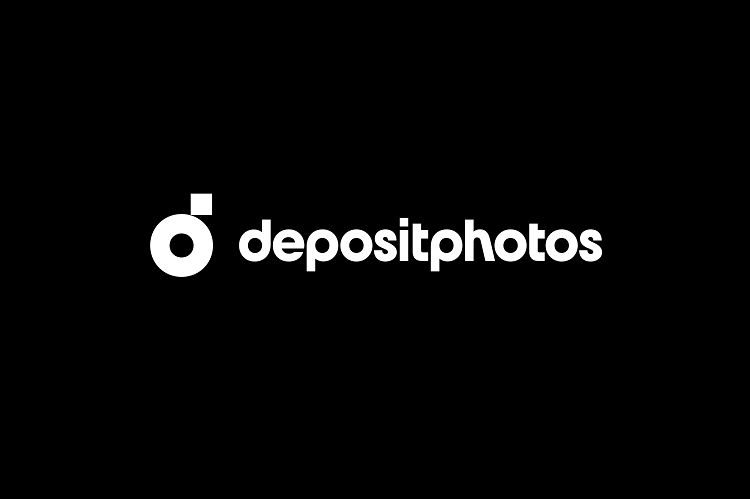If you’re using stock images for client work, online ads, or packaging, it’s not just about finding a good photo—it’s about using it legally. Depositphotos offers flexible licensing options, but misunderstanding them can lead to real legal trouble.
Table of Contents
What Is a Commercial Project and Why Licensing Matters
A commercial project occurs when creative works are utilised for the purpose of generating revenue in any way. Among the things included are a product catalogue as well as sponsored Instagram posts. Whenever business funds are involved, such as payments from clients, sales of goods, or advertising, it is considered commercial. That also means you need to think about licensing.
Why? The reason is that stock images usually have some cost. When you use Depositphotos to download an image, you are obtaining permission to use it, not actually buying the picture. A license gives permission. Obtaining the wrong permit may result in legal issues or cause your ad to be removed from the platform.
Using a common license image for multiple products is not permitted by Depositphotos. Along with a breach of contract, you might have to face copyright claims.
Having a license keeps your work covered legally, ethically and professionally. Following the law is what many clients want above all. Google Ads might request verification. Because it is now easier than ever to find out who owns an image, you must avoid shortcuts.
Types of Licenses on Depositphotos Explained Simply
The main licenses provided by Depositphotos are Standard and Extended. Licenses from the shop, as well as copyright laws, offer permission, but they serve different purposes.
You can use the Standard License when you need a wide range of stuff. The coverage includes websites, blogs, online advertisements and materials printed in small quantities, under 500,000 copies. Digital marketers, small companies and freelance designers will find this the right license for images used in non-resale content.
With an extended license, you can print your picture more than 500,000 times, use it in products you offer (such as mugs or shirts) and add it to various templates and digital items you supply to people.
An Extended License is necessary for anyone making or selling invitations for resale, broad distribution or large runs. Other times, the Standard License will do the job. Selecting the proper license enables you to comply with the platform’s rules and remain legally safe.
What You Can and Cannot Do With Licensed Files
Once you have learned all about different licenses, you also need to know what you are and aren’t allowed to do. This type of error often leads to copyright issues, disputes with clients, or account suspensions. Let’s be very direct:
The Standard License allows you to download images for posting on social media, sharing in blog content, advertising, and sending via email. Printing is an option too, whether it’s for brochures, flyers or banners, and you can do it 500,000 times. However, making money from the product, such as selling t-shirts or book covers, isn’t allowed under Fair Use.
An Extended License allows you to do every activity mentioned previously, in addition to selling the graphics, using them on resale items, in packaging, app designs and other uses.
Which acts are forbidden under the permissible uses of the licenses?
The image can’t be used for logos, trademarks or for anything that might be offensive. It is not allowed to let someone else own or use the original file, nor can you sell it.
Basically, if your image helps your product in any way, but is not your product itself, it’s usually allowed with a Standard License. When you are marketing or selling a product with an image, the Extended License is often what you will need.
How to Choose the Right License for Your Project
You don’t have to guess the right answer—it depends on how you’ll use the software. For making a website for a client, placing Instagram ads or making flyers for a local event, go with the Standard License. This is ideal for usual design and marketing needs, and you pay less.
At this point, it is necessary to buy something new or upgrade whatever you’re using—that’s the clue. Designing the packaging for a food brand? You are required to have an Extended License for every case. It allows you to sell copies from your inventory without having to set production limits.
Ask yourself ahead of time—Is this image meant to be in a digital ad or will it be used in real-life advertising? This simple question can help you avoid using hearing aids improperly. Always review your work and discuss it with the individuals who will be using it. For any case of resale or vast distribution, ensure they are aware that an Extended License is necessary and cover this in your contract or bill.
Acting wrongly violates the rules and can have negative results for you.
Use the Right License, Avoid the Headache
Using pictures from Depositphotos for public use requires selecting the appropriate license. Running ads on Facebook, making materials for clients or producing packaging all need to follow licensing rules. Your Standard License covers digital marketing and low numbers of prints, but as soon as you start selling or distributing goods widely, Extended Licensing is needed.
If writers make mistakes, they may receive a takedown notice, upset clients, or even face legal action. Getting the job done correctly is not difficult. Simply put, is this image being used as part of something I’m selling or giving out to others? If the answer is yes, opt for the policy that covers a longer period.
Always save your receipts, record the type of license you bought and review what each project entails. Making this small effort guarantees you are shielded, skilled, and the client trusts you. If you obey the rules, Depositphotos is a safe and useful source, not a source of danger legally.

